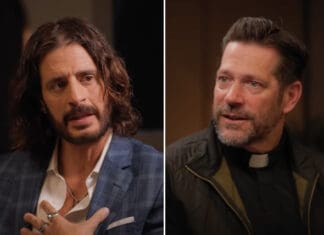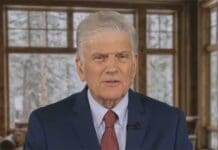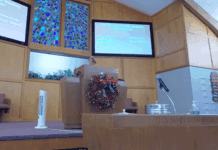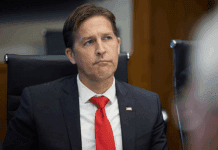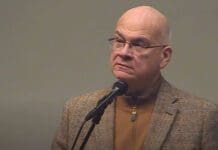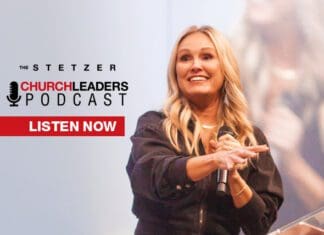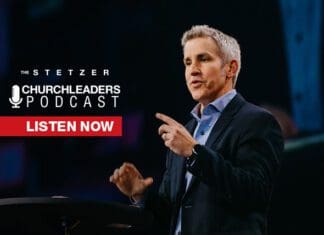‘This Will Stay With Me Forever’—Jonathan Roumie Tells Father Mike Schmitz Portraying Jesus’ Crucifixion Left Him ‘Raw’
Jonathan Roumie joined Father Mike Schmitz to discuss the impact portraying Jesus’ crucifixion in “The Chosen" has had on Roumie’s life.
Franklin Graham Believes the ‘Lie of Socialism’ Is Why Millennials and Gen Z Are Returning to Church
Franklin Graham believes the “lie of socialism” is one of the main reasons for a resurgence in church attendance among Millennials and Gen Z.
‘I Was Naive’—Rob Schneider Says Hollywood Kicked Him Out for Questioning the ‘Tribe of Democrats’
Actor and comedian Rob Schneider sat down with Jan Jekielek, host of "American Thought Leaders," to discuss politics in Hollywood.
49ers Quarterback Brock Purdy Blesses 9 Families With New Vehicles
San Francisco 49ers QB Brock Purdy presented new vehicles to military veterans and families whose children are sick or have disabilities.
Wes Huff Predicts Christopher Nolan’s Moral Vision in ‘The Odyssey’ Will Be More Christian Than Homer’s
Last week, the trailer for Christopher Nolan's highly anticipated film adaptation of "The Odyssey" was released online, leading to both praise and criticism.
John Cooper Recalls His Mother’s Deathbed Vision That He Would Lead People to Hell: ‘I Don’t Believe It Was Real’
During a recent interview, Skillet frontman John Cooper opened up about his teenager years and how his mother's death influenced him.
Russell Brand Faces More Charges in the UK of Rape and Sexual Assault
Days after speaking at America Fest 2025, British comedian and actor Russell Brand was charged with two additional sex crime counts.
‘Merry Christmas to All, Including the Dead Terrorists,’ Says Trump Following Airstrike on ISIS in Nigeria
On Christmas, President Donald Trump said in a social media post that the U.S. had launched a “deadly strike against ISIS” in Nigeria.
Oklahoma Pastor Recovering After Being Stabbed During Attack Inside Church
An Oklahoma pastor is recovering from knife injuries after being attacked by an assailant at the Church of Christ in Pryor.
Despite Terminal Cancer, Ben Sasse Has ‘Hope in a Real Deliverer’
While sharing news of his terminal cancer diagnosis, former Sen. Ben Sasse noted that everyone has a “death sentence” and “we’re all on the clock.”
Top Articles
17 NFL Players Who LOVE Jesus (and Football)
Here's our latest list of notable Christian football players. These outspoken NFL players are strong in their faith and are not afraid to share their Christian beliefs.
12 Things Pastors Cannot Do
There are 12 things a church pastor cannot do. Pastors are amazing people and, in faith, they can do a lot...just not these things.
12 Habits That Lead to Divorce, and How to Avoid Them!
No one intends to develop these habits that lead to divorce. In fact, every married couple has exchanged vows which promise “til death do us part,” but for far too many marriages, their dreams of “forever” are crushed by divorce.
Can a Christian Drink Alcohol?
Can a Christian drink alcohol? I have yet to hear from anyone who drinks say how alcohol enhances anything or blesses anyone.
Tim Keller: 3 Questions Fake Christians Can’t Answer
Tim Keller offers a group of “questions designed to wake up sleeping Christians” in the following video. These are questions fake Christians will have...
LATEST ARTICLES
Join our community and be part of the conversation.
To subscribe, simply enter your email address on our website or click the subscribe button below. Don't worry, we respect your privacy and won't spam your inbox. Your information is safe with us.
Get emails and offers from ChurchLeaders.com. Privacy

